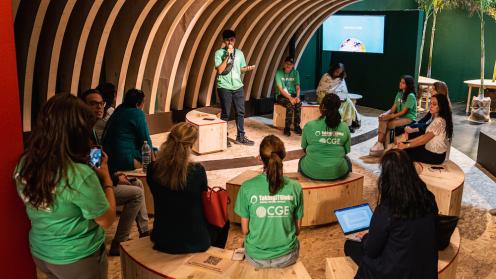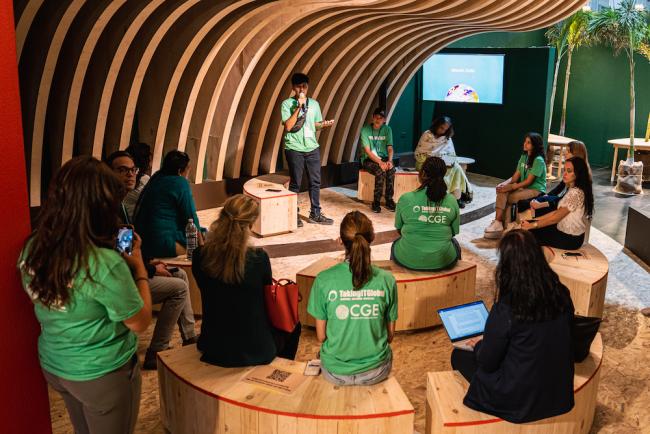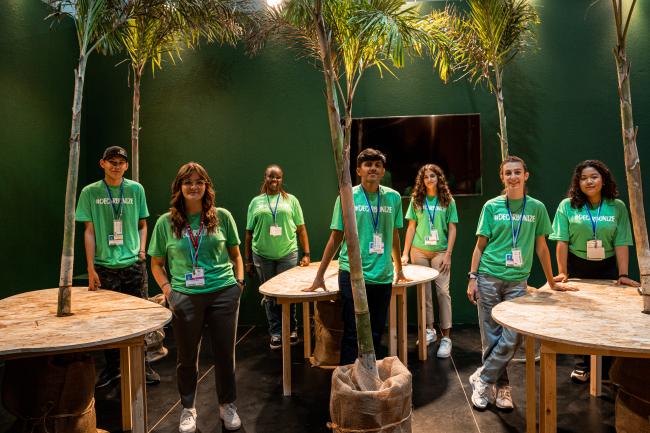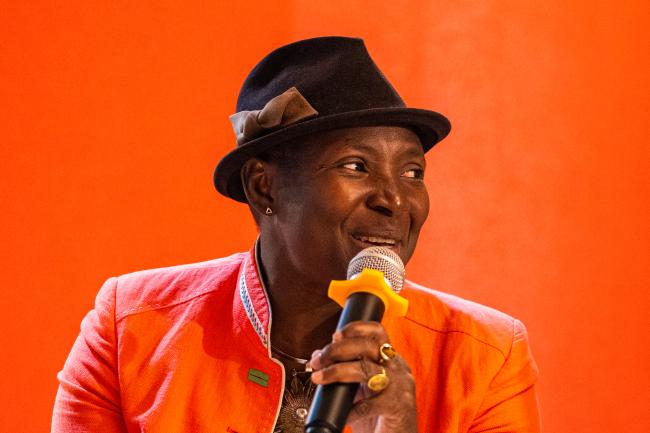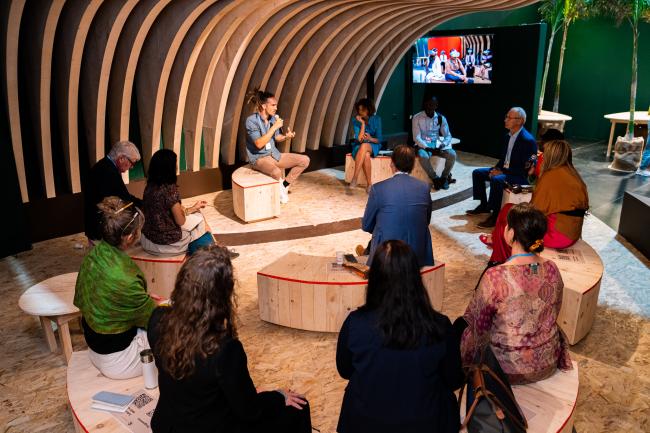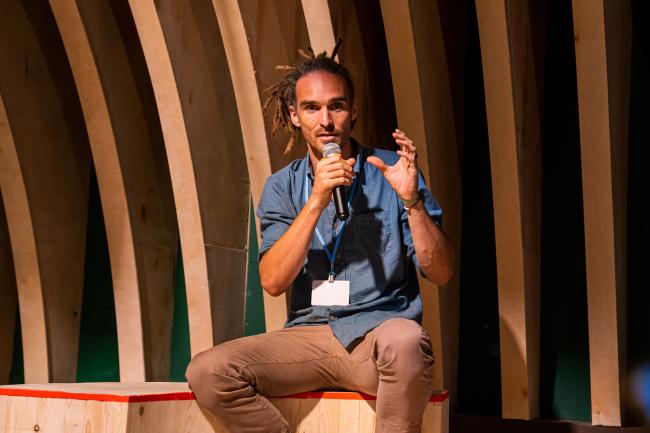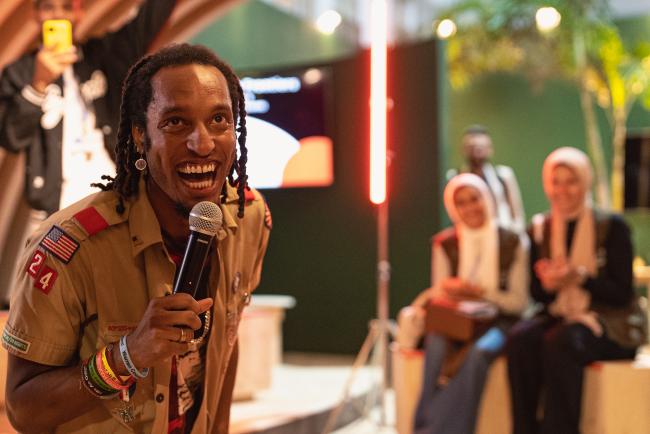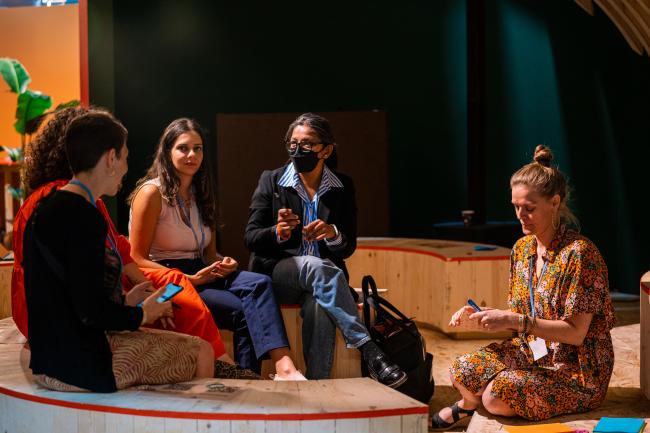Lifelong Learning for Environmental Stewardship
Engaging all ages and communities in meaningful dialogues, and creating fresh approaches that consider the well-being of future generations, is critical for stewarding our planet. Today’s sessions of the Resilience Frontiers Pavilion highlighted the need to involve everyone in creating a community-driven mindset that can bring insight and experience from all generations and cultures to build a better future for everyone.
The second day of the Pavilion’s programme explored Pathway 2, which focuses on lifelong learning for environmental stewardship. In the first event, moderator Terrance Godwaldt, Director, Center for Global Education (CGE), invited six youth speakers from Decarbonize, CGE’s youth-led project focused on empowering youth to get involved in climate change issues, to share their lived experiences and their vision for a better future:
- Juana Beramendi, Argentina, shared examples of collaborations with students from around the world. These include gathering their perspectives on the impact of climate change in their countries, and helping them put on paper their ideas on how to make the world a better place for their generation.
- Lura Marwa, Kenya, discussed some of the projects from students from around the world that showcase the links between climate change and agriculture, such as the creation of case studies and a Global Art Gallery where students can share their artwork on the topic. She also shared the Decarbonize Global Youth Manifesto 2022, which was the result of collaboration among young writers from around the world.
- Thalia Tanawy, Egypt, shared the different activities that students from Egypt have conducted to create an impact: mobilizing climate strikes and peaceful protests; planting native trees in schools; cleaning beach shoreline; building solar panels in schools; and creating blogs about sustainability.
- Ankith Rao, India, underscored that the youth “believes that transformation and change is possible” so there is a need to equip young people with the skills to face the “ever-changing world.” “As we bring our voices to the forefront, we require your support, mentorship, and guidance in order to grow,” he stressed.
- Sean Bernard, Canada, emphasized that “we as children need to be involved in matters that impact our lives, we need to be part of this conversation so that we can push our voices to be heard.” He added that “institutions need to step up and amplify these voices. Leaders of today must inspire leaders of tomorrow as an example.”
- Irene Desiree, the Philippines, pointed out that youth are underrepresented in the climate negotiations and discussions. She called for organizations to start working and having discussions with children and shared her vision that, in time for COP 28, Decarbonize’s next Global Youth Manifesto is created to highlight the stories of children from around the world. “Being a child is tough, but it is also our power,” she concluded.
In the Pavilion’s second event focusing on becoming stewards for the future, moderator Princess Abze Djigma, Chair, Digma Foundation, prompted speakers to share their thoughts on how to become better stewards of the planet and protect the environment for future generations.
Andrew Hoffman, Dean Veterinary School, University of Pennsylvania, discussed the need for a declaration, not only on intergenerational rights, but also for interspecies rights because stewardship of nature should include animals and nature. In response to a question on educating children about environmental issues using social media, he pointed out that, for good environmental education, “there has to be a balance between culture and rigorous science and evidence-based practices.”
Sophie Howe, The Future Generations Commissioner, Wales, shared that Wales is the first country in the world to legislate the protection of intergenerational rights, and described advocacy efforts happening at the moment to encourage other countries to establish laws that protect the rights of future generations.
Louis Cole, YouTube content creator, underlined that storytelling in social media can be helpful on how we educate young people about the impact of climate change. He pointed out that “we’re in very exciting times” because everyone has access to technologies such as smartphones that allow sharing experiences and learning from each other through social media.
In the afternoon, the Pavilion hosted three events: a live performance by AY-Musik; an interactive climate change game highlighting consensus and stakeholder roles in choosing among different policy options to reach net zero; and a thought-provoking workshop on using different methodologies to train the mind to envision the kind of future we want.
Organizers: Resilience Frontiers, UNFCCC
Contact: Susan Robertson I srobertson@unfccc.int
For more information: https://resiliencefrontiers.org/cop-27
To receive free coverage of global environmental events delivered to your inbox, subscribe to the ENB Update newsletter.
